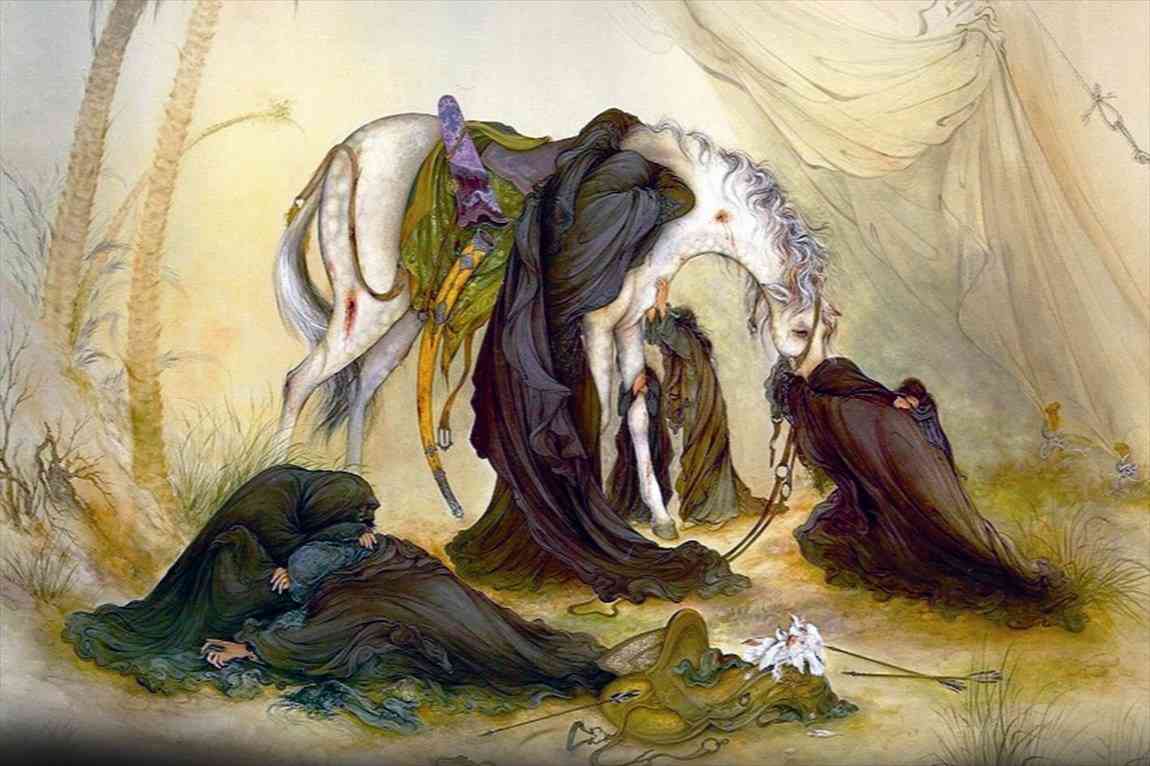By: Sayed Ammar Nakshawani
Are the Narrations of Karbala Reliable? As-salamu alaykum, wa Rahmatu Allah. This is indeed a very good question. How can we trust the reliability of what is narrated to us about what took place on the plains of Karbala on the 10th of Muharram? There is no doubt that if you break the word "history" into two, it becomes "his-story", and everybody will look at a certain part of history in their own way, whether they're influenced by society or their own political opinions. Can we ever recreate or reconstruct exactly what took place on the 10th of Muharram?
I think that is virtually impossible. And I believe anyone who even attempts to do so will admit that this is the best effort they could possibly come up with. But the reality is, at the same time, there were those who survived the events of the 10th of Muharram to live and tell the tale of the tragedy and oppression that took place. First and foremost, Imam Zayn al-'Abidin, alayhi as-salam, lived after the 10th of Muharram for over 30 years, and he was able to narrate to us what exactly took place. Likewise, Imam al-Baqir, alayhi as-salam, who was only three and a half years old on the plains of Karbala, was able to tell us what took place on the 10th of Muharram.
Likewise, Sayyida Zaynab, alayha as-salam, who lived for a couple of years after the events of the 10th of Muharram, could tell us about Karbala, Kufa, and Shaam. Likewise, Imam Al-Hasan, alayhi as-salam, according to some narrations, had three sons who survived Karbala, and one of them, Al-Hasan al-Muthanna, would be able to tell us what took place. Likewise, there were certain companions of Imam al-Husayn alayhi as-salam, such as Wahhab bin Abdullah, who may not be the best example of loyalty to Imam al-Husayn, alayhi as-salam, but certainly lived after Karbala and after what took place in Kufa and Shaam.
There were also women such as Rabab, or Dailam, who were able to remain alive and tell us what took place at Karbala. There were journalists, such as Hamid bin Muslim, who narrated to us what took place at Karbala. Likewise, Mukhtar al-Thaqafi, when he caught those who oppressed, killed, and butchered the family of Rasul Allah, salla Allahu alayhi wa alih, and their companions, was able to extract statements about what took place.
The likes of Umar bin Sa'ad, Ubaydallah bin Ziyad, Harmala bin Kahil, Shimr bin Dhi 'l-Jawshan were all captured five years after Karbala and were executed. They were able to provide some information about what took place. Likewise, the Imams of Ahl ul-Bayt, salawatu Allah, wa as-salam alayhim, were able to tell us about what took place at Karbala, in their own way and through their traditions, including in the Ziyarat.
Therefore, there are many sources through which we are able to understand some of what took place at Karbala, and perhaps it is a blessing that we don't know everything that occurred, as some of us may not be able to handle it.
Wa as-salamu alaykum, wa Rahmatu Allah.

